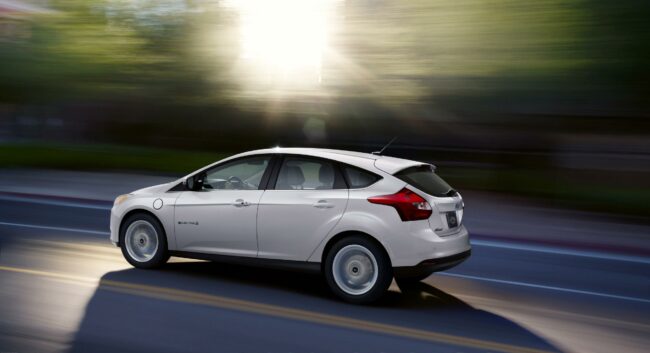
With the continuous advancement of automotive technology, vehicles these days are crafted to last longer and travel farther than ever before. Once your car reaches the significant 100,000-mile mark, it certainly calls for diligent maintenance to ensure its continued performance and reliability. Consequently, in this article, we will judiciously delve into the essential aspects of car maintenance at 100,000-mile mark. Simultaneously, we will provide practical tips and insightful advice that will assist you in keeping your vehicle running smoothly for countless more miles down the road.
Regular Fluid Checks and Changes: car maintenance at 100 000 miles
At the 100,000-mile mark, it is crucial to pay extra attention to your vehicle’s fluids. Regular checks and changes of engine oil, transmission fluid, coolant, and brake fluid are essential to maintain optimal performance. Over time, these fluids can become contaminated or break down, compromising the efficiency and longevity of crucial components. By adhering to the manufacturer’s recommended fluid change intervals, you can help extend the lifespan of your vehicle’s engine and various systems.
- Engine Oil: Regularly check the engine oil level and quality. Consider changing the oil and oil filter more frequently to ensure adequate lubrication and protection for the engine’s internal components.
- Transmission Fluid: Have the transmission fluid inspected and replaced if necessary. A well-maintained transmission fluid helps ensure smooth gear shifts and prolongs the life of the transmission.
- Coolant: Check the coolant level and inspect the radiator hoses for any signs of wear or leaks. Replace the coolant if it appears discolored or if the vehicle’s manual recommends it.
- Brake Fluid: Inspect the brake fluid reservoir. Flush brake fluid and replace it at the recommended interval. Brake fluid absorbs moisture over time, which can lead to reduced braking performance.
Timing Belt and Water Pump Replacement
One of the critical car maintenance at 100 000 miles is the replacement of the timing belt and water pump if your vehicle is equipped with one. The timing belt is responsible for synchronizing the engine’s valves, while the water pump ensures proper cooling. Failing to replace these components at the recommended interval can lead to catastrophic engine damage. Consult your vehicle’s manual or a trusted mechanic to determine when these parts should be replaced.
- Timing Belt: The timing belt should be replaced as recommended by the vehicle manufacturer. It is a preventive maintenance measure to avoid belt failure, which can result in severe engine damage.
- Water Pump: If your vehicle has a timing belt-driven water pump, consider replacing it along with the timing belt. This ensures the longevity of the cooling system and minimizes the risk of overheating.
Suspension and Steering Components
By the time your car maintenance at 100 000 miles becomes, its suspension and steering components may have experienced wear and tear. Regularly inspect and replace shock absorbers, struts, bushings, and other suspension-related parts as needed. Maintaining a stable and responsive suspension system is crucial for both safety and comfort during your journeys.
- Shock Absorbers and Struts: Inspect these components for signs of leakage, uneven tire wear, or excessive bouncing. Worn-out shocks and struts can compromise the vehicle’s handling and stability.
- Bushings and Control Arms: Check for any signs of play or excessive wear in the bushings and control arms. These components help maintain proper alignment and stability.
- Steering Components: Inspect the steering linkage, tie rods, and steering rack for any signs of looseness or wear. Properly functioning steering components ensure precise and responsive control of the vehicle.
Fuel System Maintenance
To keep your engine running at its best, it’s essential to pay attention to the fuel system. By 100,000 miles, your vehicle’s fuel injectors and filters may require cleaning or replacement.. Regular maintenance of the fuel system will help maintain optimal performance and extend the life of your engine.
- Fuel Injector Cleaning: Consider having the fuel injectors professionally cleaned to remove any deposits or contaminants that may impede their function. Clean injectors promote efficient fuel atomization and combustion.
- Fuel Filter Replacement: Replace the fuel filter as recommended by the vehicle manufacturer. A clogged fuel filter can restrict fuel flow and strain the fuel pump, potentially causing engine performance issues.
Security From Relay Attacks
Keyless Keeper is a user-friendly electrical chip that is for sale. All you have to do is place it in the car’s key fob, and it will protect the battery from both sides. When there is no movement, the chip will disconnect the battery to ensure that it does not broadcast radio waves until absolutely necessary. It deactivates the key fob after 3 minutes of inactivity. The chip works against signal extenders, which are often used by thieves to discover the needed frequency and replicate it in order to trick the car.
The chip eliminates the necessity for a keyless vehicle pouch and other defensive systems. It will help you in a variety of ways, including prolonging battery life. Battery
Conclusion
Car maintenance at 100 000 mile mark plays a vital role in preserving the longevity and reliability of your vehicle. By following the recommended guidelines and consulting your vehicle’s manual or a trusted mechanic, you can address potential issues before they escalate and ensure that your car continues to serve you well for many more miles. Remember, a well-maintained vehicle not only provides peace of mind but also contributes to safer and more enjoyable journeys.
Latest Posts
- 1
- 2
Is Buying a Car with Over 100k Miles a Good Idea?
April 10, 2024 - 3
Why Are High Mileage Cars So Expensive? – A Guide
April 5, 2024 - 4
Where Is The Mileage Located In A Car?
April 3, 2024 - 5
Whats High Mileage in Vehicles?
March 29, 2024 - 6
What’s The Gas Mileage On A Smart Car: A Comprehensive Guide
March 27, 2024 - 7
At What Mileage Should You Sell Your Car?
March 22, 2024 - 8
Should You Buy a Car with Over 100k Miles?
March 20, 2024 - 9
Should You Buy a Car with 100k Miles?
March 15, 2024 - 10
Understanding ODO Meaning in a Car
March 13, 2024









